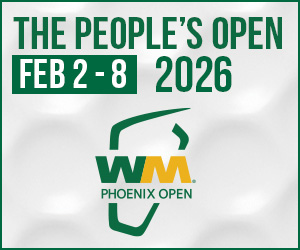New details have emerged regarding how small businesses might be able to win some of the federal dollars flowing to the State of Arizona as part of the Infrastructure Investment and Jobs Act. The bill, signed into law by President Biden in November of 2021, allocates funds to states and businesses by means of grants and specialized programs. Both delivery methods have direct state recipients as well as competitive opportunities.
We now know that about 39%, or $77 billion, of the nearly $200 billion that will be directly distributed to states within the next five years will be competed for amongst the states. State governments, local governments and businesses alike will be eligible to apply for these roughly 240 competitive grant programs, depending upon the stipulations outlined in the specific fund pool or program.
Arizona is eligible to compete with other states for $2.36 billion allocated for the Bridge Investment Program in FY 2022, $16 billion apportioned for economically significant infrastructure improvement projects, $2.5 billion in grant funding dedicated to electric vehicle charging, and $5 billion in discretionary funding over five years to address aging infrastructure at its airports, as well as other funds designated to specific public works projects.
In some situations, Arizona will apply to the Federal government to secure funding for the State. The private sector will then be charged with public infrastructure projects and a formal bidding process will begin to award a contractor. Bidding is the typical way in which government-backed infrastructure projects are contracted out to firms. In other situations, the private sector will apply directly to the government in an effort to secure funds for specified projects. Competitive grants will be applied to and released on a rolling basis. Applicant specifications, general grant information and upcoming grants can be found here.
One example of a federally backed program that will directly be impacting the Arizona business community is the $14.4 million allocation to the Phoenix-Mesa Gateway Airport. The grants will be used to update existing temporary terminal space with a permanent five-gate, ADA compliant facility. The City of Mesa will be using a contract bidding system consistent with past infrastructure projects to source private firms to complete the improvements. Information regarding Phoenix-Mesa Gateway Airport specific bids can be found here.
It is worth noting that significant challenges arise when dealing with the disbursement of funds from state agencies, such as high application eligibility requirements and inequitable allocation. Past major federal spending bills such as the 2008 American Recovery and Reinvestment Act as well as the 2020 Coronavirus, Aid, Relief, and Economic Security Act have demonstrated significant lags in the transfer of funds to those — the businesses — that are working toward specified objectives. Given past wait times, one can predict a continued wait for funds to flow to businesses that were won at the state level.
Arizona businesses that operate in sectors such as infrastructure and energy can expect an increase in projects as the flow of funds to Arizona increases. Businesses have had the opportunity to prepare operations and anticipate projects before they occur given the bill was signed into law over nine months ago. The lag has been critical for contractors to recruit employees to complete the projects given the nationwide labor shortage but has helped support local economies during the current economic downturn. Expect to see more news and information regarding infrastructure funding in the state within the next few months.
Alexis Glascock is an attorney in Fennemore’s Government Relations and Regulatory practice group and oversees Government Relations in Arizona.















